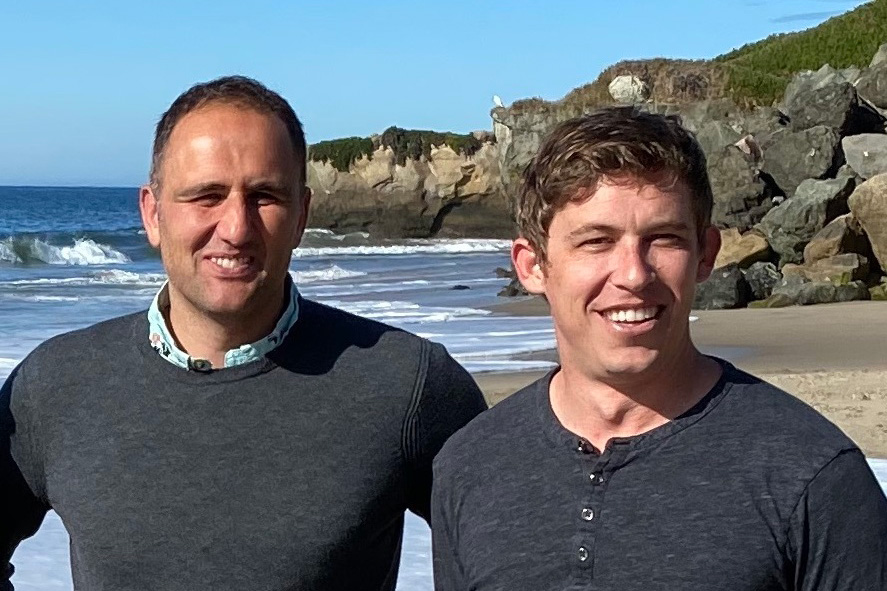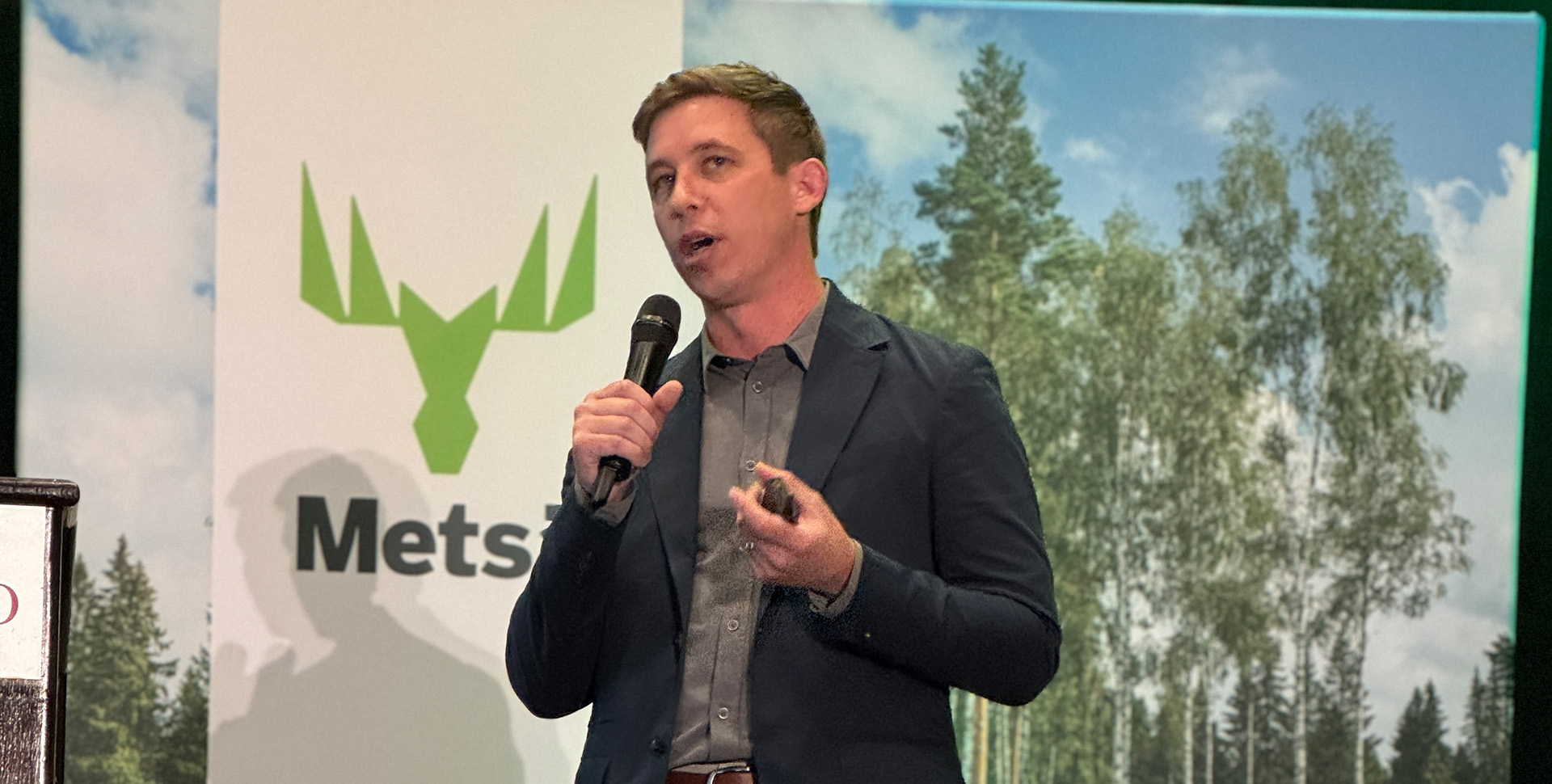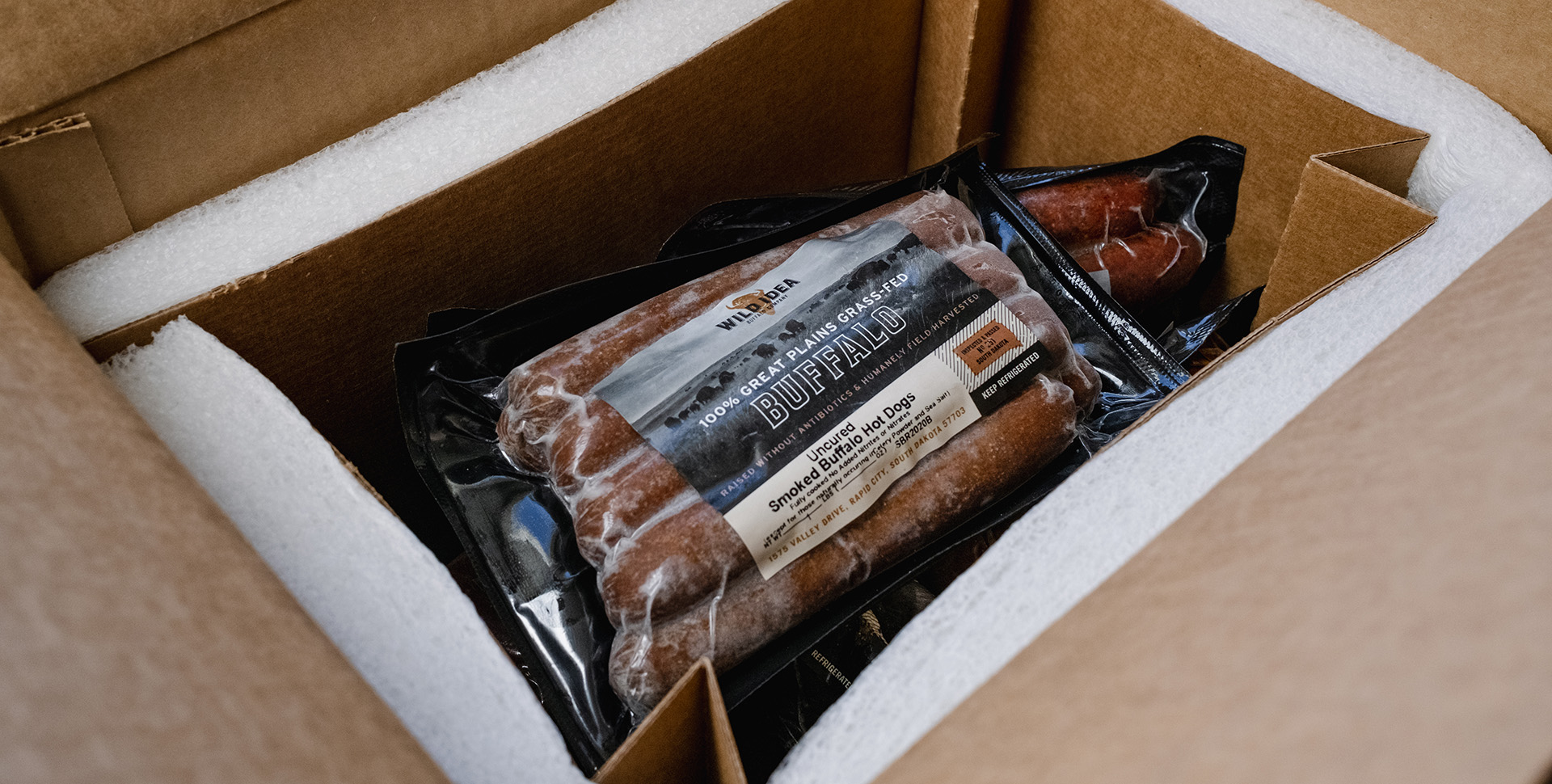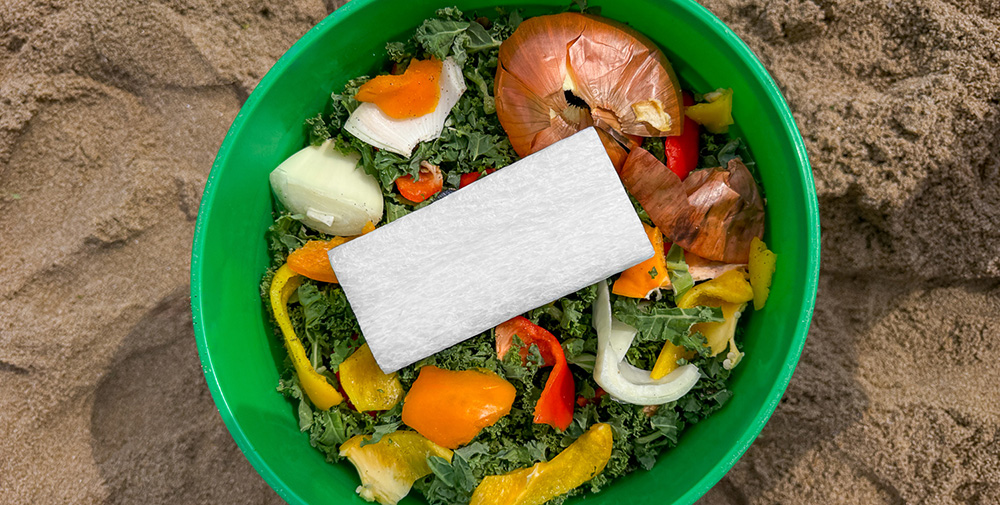The future of foam
John Felts' bio-based foam is making waves in the packing industry.
By: Theresa Gabrielli
Images courtesy of: Cruz Foam
Top image caption: A sample of Cruz Foam on the California coastline.
Whether it's protecting your new dishwasher from damage before it reaches your kitchen, or keeping your chocolate from melting in transit, foam packaging is crucial in today's global economy. Unfortunately, most standard-issue packing foam is made with plastics that are difficult to repurpose or safely dispose of.
Enter University of Washington materials science and engineering (MSE) alumnus John Felts (MS '15). An avid surfer, he felt compelled to put his degree to use in a way that benefitted the world's oceans. His aspirations matched those of Marco Rolandi, an affiliate associate professor of UW MSE, and together they founded Cruz Foam. Their product is a Styrofoam-esque material made from food waste like non-edible plant (or "vegetable") scraps and shrimp shells; things that would have otherwise ended up in landfills are given a second life protecting the ecosystem from which they came. This bio-based foam can be shaped and produced with existing machinery, and best of all, it can degrade naturally in a backyard compost bin.
Since its launch in 2017, Cruz Foam has partnered with brands like Amazon and Whirlpool, received multiple accolades including from TIME Magazine and Fast Company, and garnered investments from A-list celebrities Leonardo DiCaprio and Ashton Kutcher. We spoke with Felts about how his company is tackling challenges in sustainability, the relationship between materials and the environment, and how his background in engineering shaped his career.
What inspired you to start Cruz Foam?

There are many factors that influenced my decision to co-found Cruz Foam with Marco. One is our mutual passion for the ocean. We are both surfers and have witnessed first hand the plastic and chemical waste that is ubiquitous in our waterways. Further, at UCSB, we could see oil rigs from my surf break, and I frequently came home from the beach with tar on my feet. Also, in my work on remediation of soil, waterways, groundwater, and air, that had a profound impact on me emotionally. All of this has contributed to our shared passion and mission for inventing sustainable materials to replace their harmful counterparts – initially in single use plastic, and eventually in other areas.
Can you describe your product, and what sets it apart from the competition?
Cruz Foam is a patented, ASTM-compostable material that has the technical properties and performance to match [traditional plastic-based] EPS and EPE in most commercial applications such as protective packaging, insulation, and other common supply chain uses, and that is also produced from upcycled food industry waste. The truly unique elements are the technical properties, and that our production is designed from the start to work with existing equipment, factories and employees so today’s single use plastic foam producers can easily diversify their product lines, providing sustainable alternatives, a safer workplace, and a diversified, future-proof revenue stream. This can also be done anywhere in the world currently producing plastic foams.
How is Cruz Foam tackling sustainability at all steps of the product’s supply chain and lifecycle?
We utilize upcycled food industry waste, therefore diverting that waste from landfills. We also design for end of use so that material goes to compost, which in turn goes to enrich the earth with nutrients, enabling new things to grow. We are very proud of that.
We work with all stakeholders in the ecosystem including the brands, their converters and packaging designers, wholesalers and distributors, certification and regulatory bodies, and the waste management stakeholders.
How has your degree in Materials Science & Engineering at the University of Washington informed your work?
My time at the UW influenced me as a co-founder and co-inventor, and my work in materials science led me on this path. And, of course, meeting Marco. My studies helped me gain a deep knowledge for material development, especially working with biomaterials, and helping better understand pathways in which to scale and commercialize material technologies.



Left: Felts speaks at a sustainability conference. Top right: Packing foam is critical for preventing frozen food from thawing before it gets to your grocery store freezer aisle. Bottom right: Because Cruz Foam is developed using food waste, it can go straight into the compost bin.
A couple of years ago you acquired some pretty famous backers! How did Ashton Kutcher and Leonardo DiCaprio come to be involved in Cruz Foam, and how has their involvement impacted the company?
As with many of our investors and advisors, they found us! Many of our supporters have extended and varied connections, and like-minded and equally passionate individuals often end up in the same place. This has certainly been true of our team.
What recent success has the company seen that you’re most proud of?
There is no doubt that our recent partnerships with Amazon Robotics, LVMH, and other well respected entities with strong sustainability goals is very gratifying. Also, we have been honored with several awards over the past year that were beyond my imagination, such as the TIME Best Inventions of 2023, PentAwards Sustainable Packaging Design in 2023, Fast Company Most Innovative Companies in 2024, and Food & Wine Game Changers also in 2024.
What would you say is the biggest challenge facing Cruz Foam right now?
Global scale and cost, which go hand in hand. Growth geographically – i.e., producing close to where customer manufacturing and packaging takes place is critical to supply, cost, and other key factors in our initial market ecosystem.
What are the most rewarding parts of running Cruz Foam?
The impact and the people. We know that our product works and will have a profound impact on stemming the flow of new single use plastic foams into our environmental ecosystems. That matters hugely. And of course the people. Our team inside the company and our greater community is amazing, and I learn from every single member of the team no matter what role or seniority. It truly takes all of us to make this work.
Why did you choose to pursue a master’s degree, and why in MSE specifically?
After my work in remediation, I knew I wanted to learn more about this discipline and pursue some form of meaningful work in material science.
What role do you think materials will play in addressing some of the world’s most pressing challenges?
If we want to genuinely stop plastic pollution, we have to stop producing single use plastic. It couldn’t be more simple than that. But in order to do that, you have to produce viable alternatives that can meet the technical needs of customers, as well as work with the existing supply chain and partners in the way that they are currently operating. At Cruz Foam we have done that, and we are now at cost parity. Over the coming year we will expand our operations geographically and our scale, bringing supply to the customer and cost down to where it needs to be in order to overcome any remaining resistance in the marketplace.
Is there any advice you’d like to share with young materials engineers/entrepreneurs?
Yes, believe in your work. If you are not passionate about what you are doing – and particularly the WHY of what you are doing – you cannot succeed during the difficult times, and for any company there will be difficult times. Also, make sure you really study the marketplace and understand your customer needs and try to see the problems from their point of view.
Originally published October 30, 2024